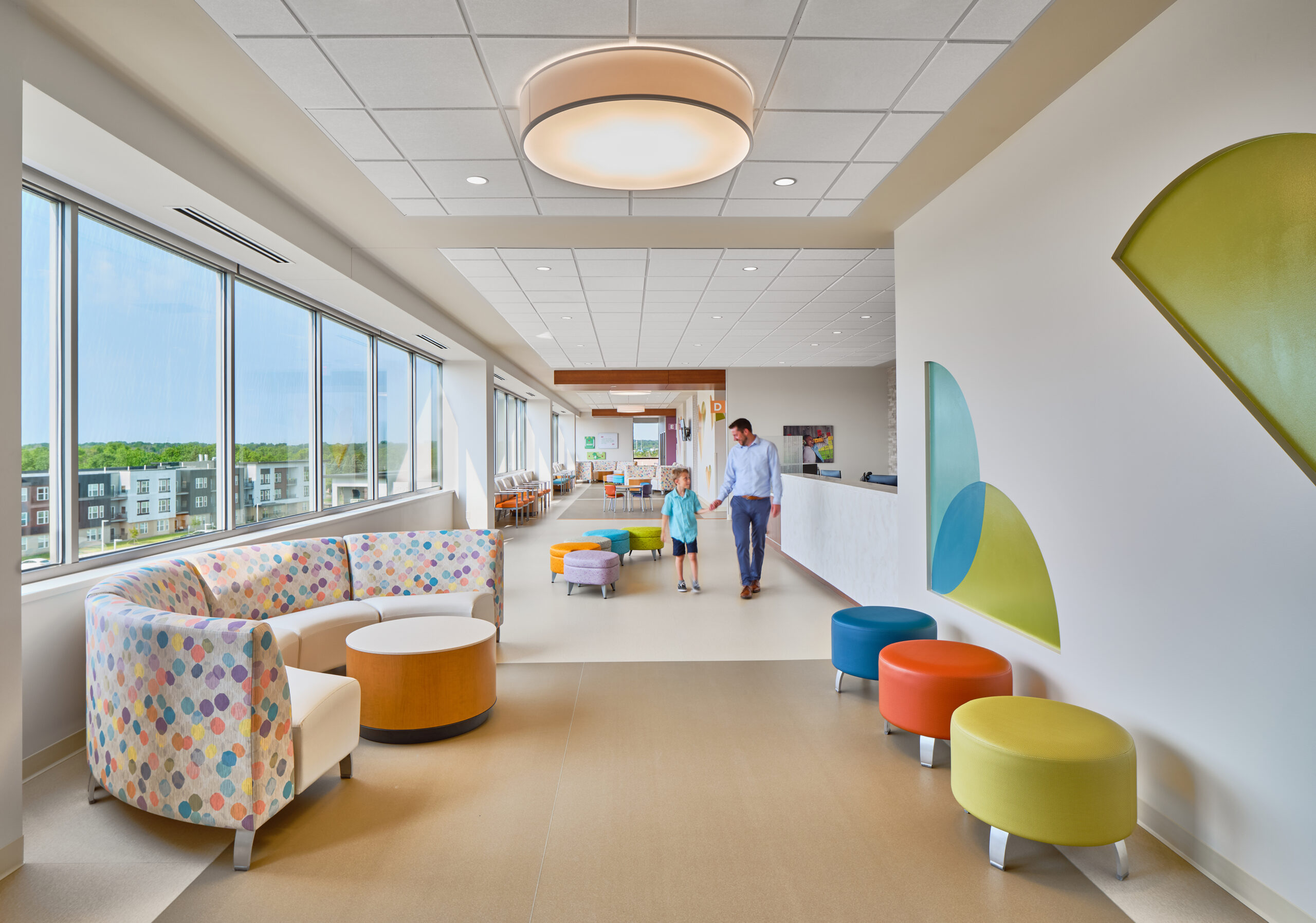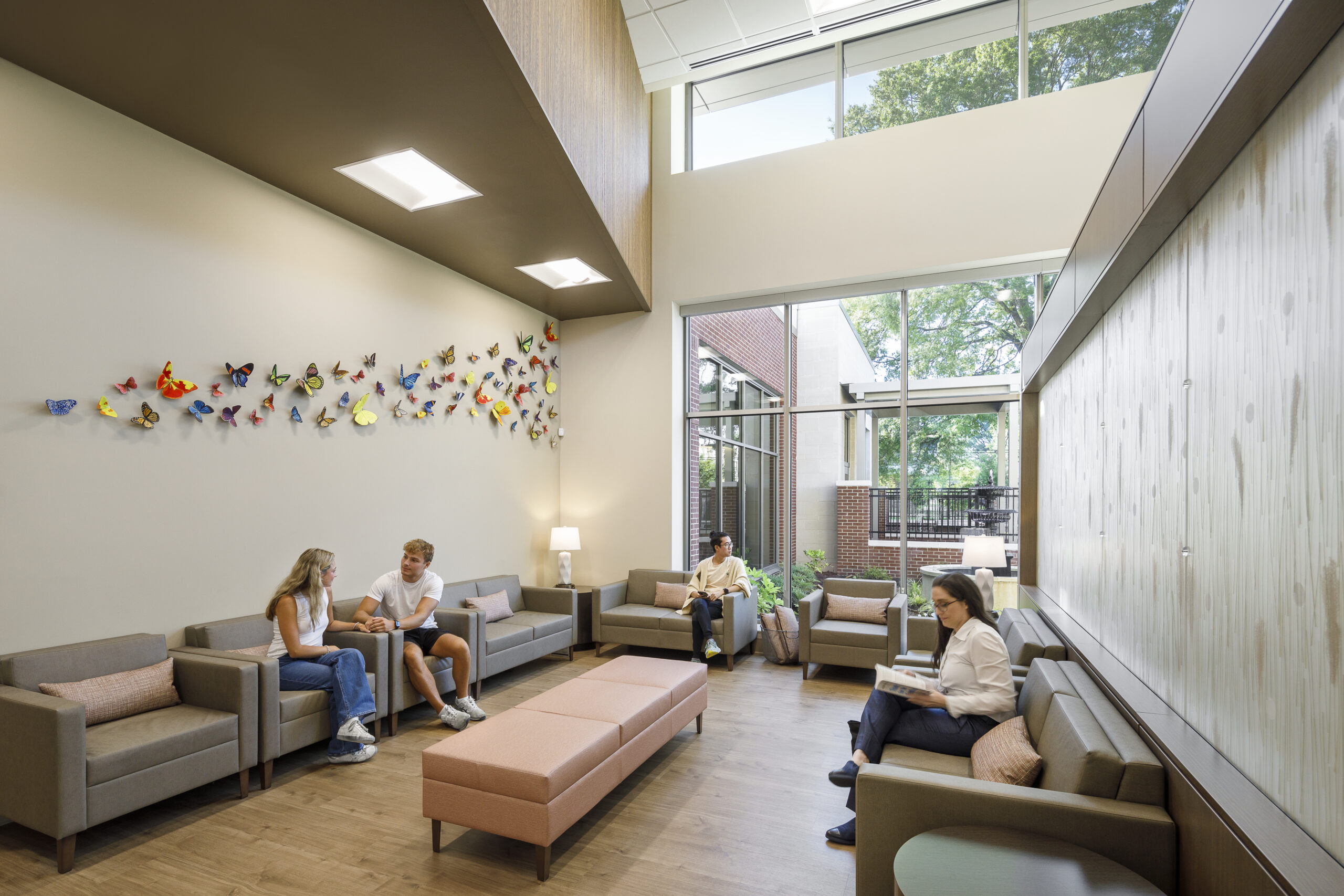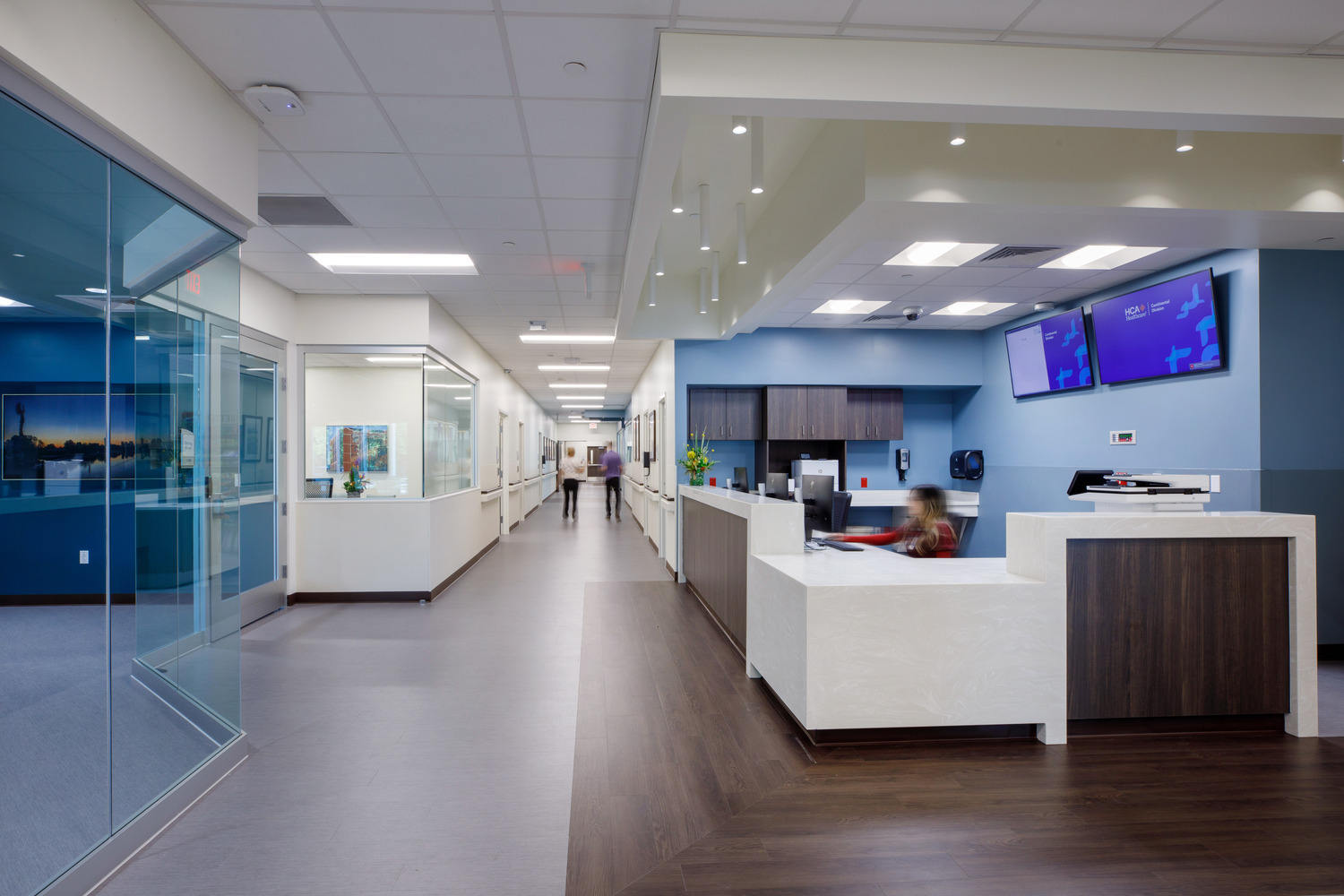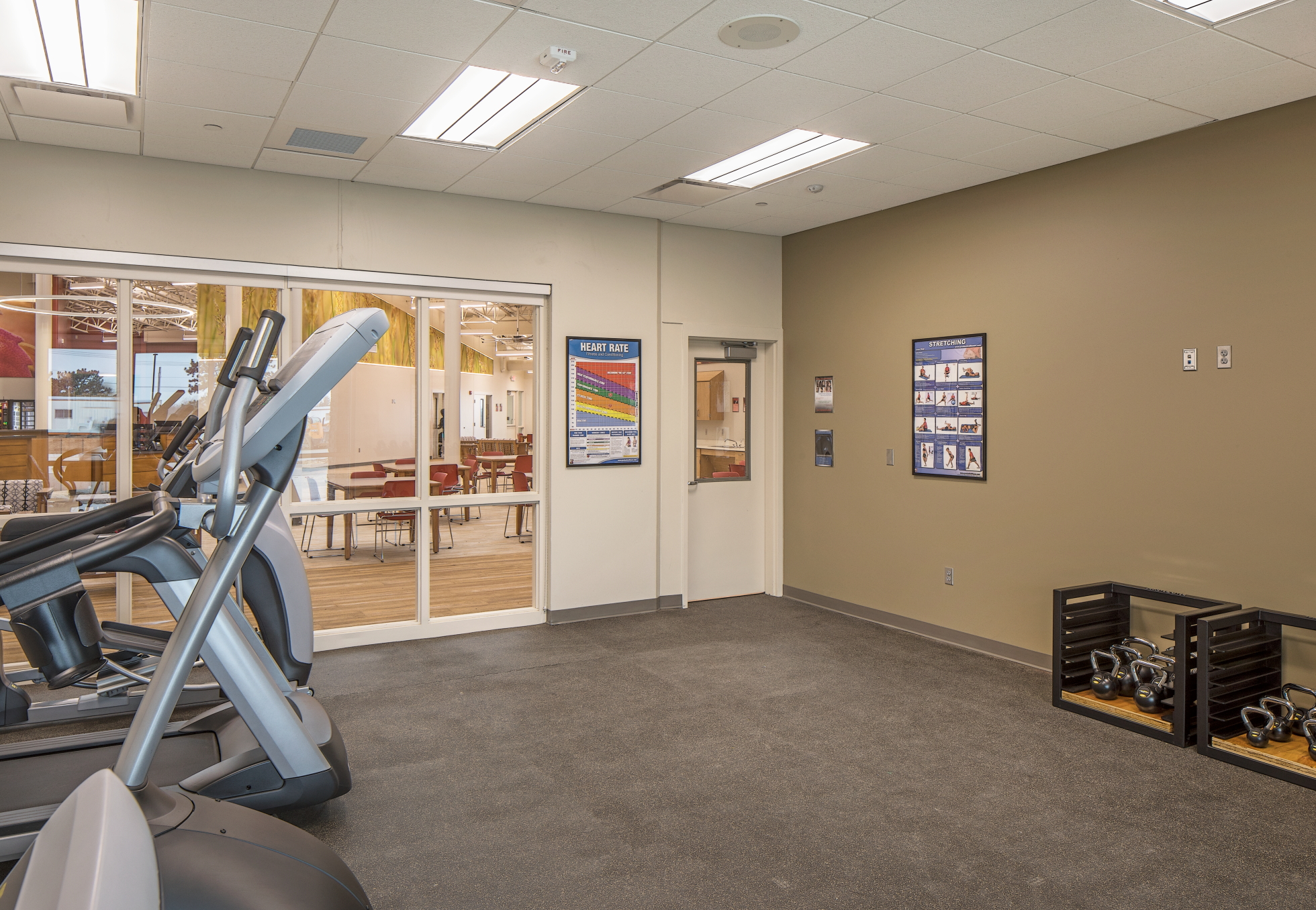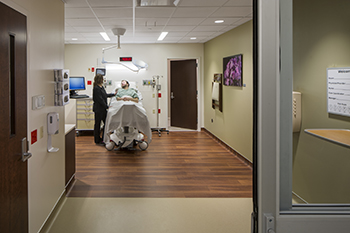 ROCK ISLAND, Ill. — UnityPoint Health-Trinity recently opened an expansion of its Heart Center and Emergency Department (ED) in Rock Island.
ROCK ISLAND, Ill. — UnityPoint Health-Trinity recently opened an expansion of its Heart Center and Emergency Department (ED) in Rock Island.
The new 90,000-square-foot, three-story expansion will consolidate cardiac services and increase capacity within the ED. The $61.3 million project is located at the front of the Trinity Rock Island hospital. The space includes a secure front triage area, a dedicated trauma room, a general radiology room, a CT room and private elevator. It also includes 22 general treatment stations, three of which were built to safe-room standards — guidelines from the Federal Emergency Management Agency (FEMA) that ensure a room provides near-absolute protection in extreme weather events.
UnityPoint Health-Trinity collaborated with CannonDesign of Grand Island, N.Y., to change patient flows, processes, staffing and use of clinical informatics (IT). Clinical IT, also know as Health IT, brings to health care the understanding, integration and application of information technology. Those who specialize in the area analyze and implement information and communication systems that can help improve patient care.
“Improving not just the space available, but the logistics of it will enable us to deliver an even higher level of care than before,” said Richard A. Seidler, Trinity president and CEO, in a statement.
The expanded space also includes a crisis stabilization unit (CSU) directly adjacent to the ED. It allows doctors and staff to move behavioral health patients into an environment that won’t trigger behavioral escalation. The unit features six patient safe rooms and interview rooms, as well as a separate “living room” intended to help calm and de-escalate behavioral health patients in crisis. The room includes wood millwork, comfortable seating, artwork, a dining room table and a fish tank.
On top of building the new CSU, the hospital is implementing a new Trauma Informed Care model. This form of care involves trying to understand and respond to the effects of all types of trauma. It also emphasizes physical, psychological and emotional safety for consumers and providers. The model is being examined on an architectural level, as well as by the National Alliance on Mental Illness and nurses and social workers specially trained on behavioral health caregiving. The Trauma Informed Care Project, a multi-year in-depth research project, could help pave the way for future design for environments that provide care for behavioral health patients.
“The success of this project is a testament to great, forward-thinking leadership at Trinity and the benefits of integrating operational and facility design processes,” said Deborah Sheehan, executive director of CannonDesign’s health practice, in a statement.
Trinity’s new heart center will house four catheterization labs with one dedicated to electrophysiology cases. It also includes 20 cardiac treatment beds, as well as six non-invasive diagnostic treatment rooms and 26 cardiac rehab stations. There is also a floor dedicated to follow-up education, which is staffed by dietitians and exercise specialists, and space to coordinate on-site care with mental health professionals.


